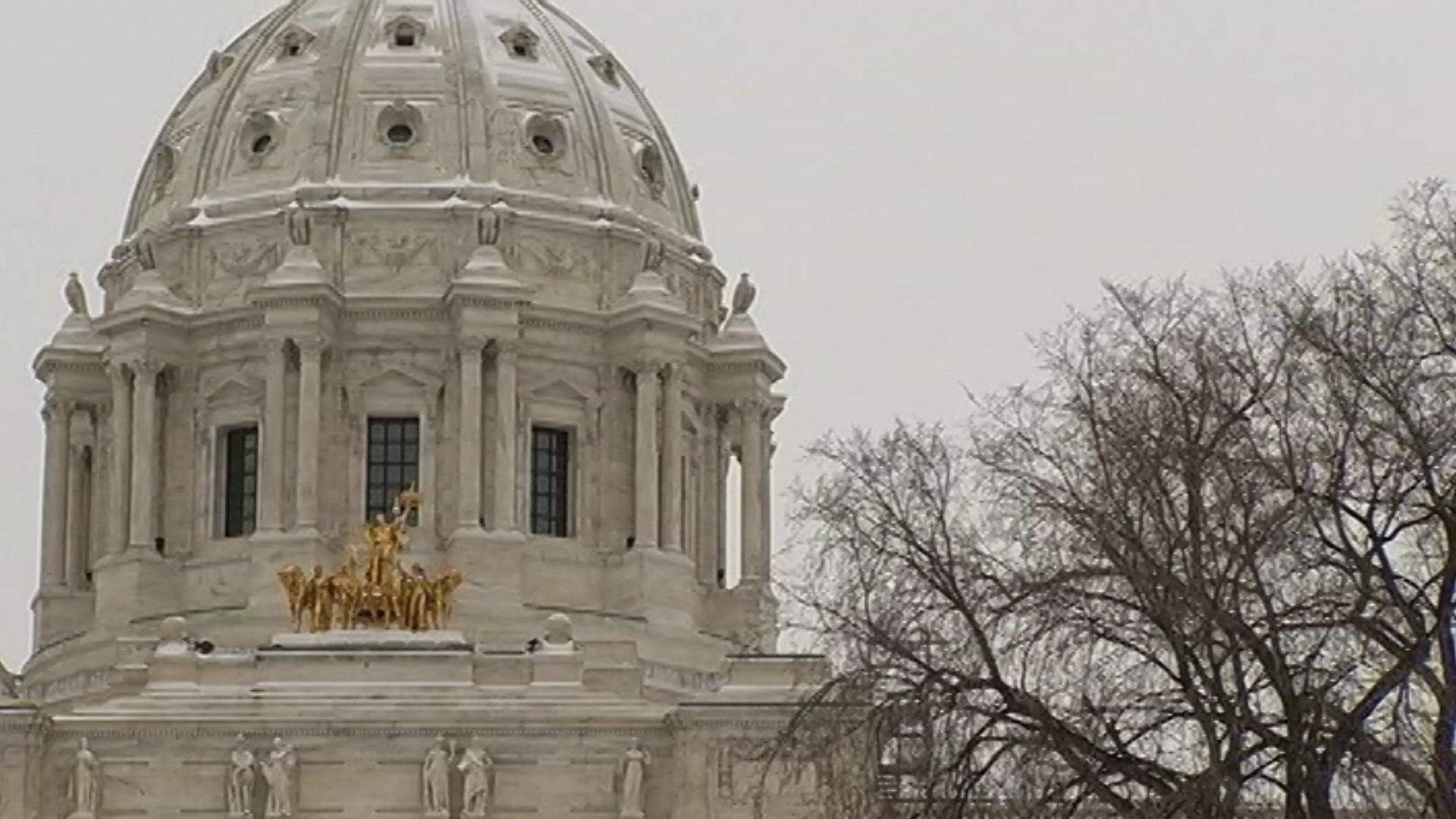Minnesota’s Legislative session begins Tuesday with focus on who is in control

Minnesota State Capitol. (WDIO, File)
Tuesday marks the start of the 2025 Minnesota legislative session that could include additional drama. House Democrats threatened to boycott opening day, while House Republicans said they would try to recall lawmakers who fail to show up. The House came out of the election tied 67-67.
The messy power struggle is unusual for a state that historically has prided itself on clean politics.
House DFL members held a secret swearing-in ceremony in preparation to not show up for Tuesday’s session which is scheduled to begin at noon. This means there wouldn’t be enough lawmakers to take care of legislative business.
All of this stems from house Republicans gaining a 67-member advantage over the 66 Democrats when DFL member Curtis Johnson became ineligible to take office. A special election for House District 40B is scheduled in two weeks. It’s in a heavily Democratic district, so the election likely will restore the tie.
Despite that, DFL members wanted to share the power.
House Democrats, led by former speaker Melissa Hortman of Brooklyn Park, reject what they’re calling a GOP power grab. They’re threatening not to show when the House convenes at noon on Tuesday, saying there won’t be a quorum without them. They even held a secret swearing-in ceremony for their members Sunday night to make it harder for Republicans to deny anyone their seat.
“It’s outrageous that they’re trying to use this two-week, one-vote edge that they have to potentially kick out newly elected members and to try to seize control for two years, which would completely ignore the will of the voters,” Hortman said at a news conference Monday.
This would be the first time the Minnesota Legislature has faced a boycott to prevent a quorum, but similar stalling tactics have been used elsewhere.
For example, Democrats in neighboring Wisconsin went into hiding in 2011 in a standoff with majority Republicans over union rights for public employees. Oregon Republicans staged multiple walkouts in recent years, including a record six-week walkout in 2023 over bills on abortion, gender-affirming care and gun rights. The top Democrat in the Michigan House last month ordered absent members back and barred the doors after a Democrat joined Republicans in skipping out.
The high-stakes poker in the Minnesota House contrasts with calm in the state Senate, where Democrats are expected to regain a 34-33 majority after a special election Jan. 28 to fill a vacancy caused by a senator’s death late last month. Unlike the House, the top Senate Democratic and GOP leaders quietly worked out a power-sharing deal Sunday.
Under Minnesota law, the secretary of state calls the House to order at the start of a session, declares whether a quorum is present, and hands over the gavel when a speaker is elected. It’s normally a quick formality.
Secretary of State Steve Simon will preside over the House until a speaker is elected. If there aren’t 68 members present for a quorum, his office says he will end the session. That’s something House Republicans are urging him not to do — they say having 67 members is just fine.
Simon recommended they go to the courts for resolution.
Republican leaders threatened Monday to seek recalls for “nonfeasance” of any Democratic representatives who aren’t present for the roll call on Tuesday, a cumbersome process that requires state Supreme Court approval.
“We are committed to holding every legislator accountable,” state GOP Chairman Alex Plechash told reporters. “If you don’t show up for the job, you shouldn’t keep it.”
In related news: In the House, a Scott County judge ruled that DFL-er Brad Tabke won the election for the seat in District 54A. The GOP filed a lawsuit for a special election after it was discovered that 21 ballots were lost — the election was decided by just 14 votes.
As part of the court case, 12 of the 20 voters from the Shakopee Precinct-10, whose absentee ballots went uncounted, were asked to testify in court.
According to Scott County, six testified they had voted for Paul, while the other six testified they had voted for Tabke.
According to the court, they then took into consideration the nine other voters who did not testify and considered those votes to be counted toward Paul. However, even with the 15 extra votes, Tabke still would have received more votes than Paul, 10,979 to 10,965, a 12-vote difference.
Meanwhile, in the state senate, there is a 33-33 tie until the District 60 seat is filled.
The seat is open after Senator Kari Dziedzik died from cancer last month. A special primary for that seat is being held on Tuesday, while a special election is scheduled to happen two weeks from now.
Hubbard Broadcasting’s KSTP and the Associated Press contributed to this story.